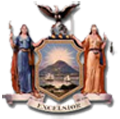April 19, 2021
Assembly Passes Hero Act, Protecting Workers from Infectious Diseases in the Workplace
Speaker Carl Heastie, Labor Committee Chair Latoya Joyner and Assemblymember Karines Reyes today announced that the Assembly has passed the Hero Act, which will establish health and safety standards to protect New Yorkers from airborne infectious diseases in the workplace (A.2681-B, Reyes).
“New Yorkers – especially those who have been on the frontlines of the COVID-19 pandemic – need and deserve to have health and safety protections in place when they go into work,” Speaker Heastie said. “We saw how quickly an airborne disease like COVID-19 was able to spread through workplaces. This is a lifesaving measure that will protect millions of workers who are the backbone of our economy.”
“The last year has shown how vulnerable our workplaces are to airborne viruses,” Assemblymember Joyner said. “The Hero Act will institute necessary protections and standards to prevent the spread of potentially deadly diseases, and ensure that New Yorkers have the protections they need when they go to work.”
“As a nurse, I know how hard this last year has been for those working on the frontlines of the pandemic – worried about their health, the health of those around them and whether their work environment was a safe one,” Assemblymember Reyes said. “We need to ensure that corporations, who have made billions during this pandemic provide adequate protections to their employees and frontline workers. I am proud that we are passing this legislation that will save lives and protect those that are on the front line of public health crises.”
The COVID-19 pandemic has exposed how easily airborne diseases spread in the workplace. The Hero Act would help prevent the spread of this deadly disease that has already killed more than 50,000 New Yorkers, and help protect against future deadly viruses. The Hero Act would require the Department of Labor, in consultation with the Department of Health to create a model airborne infectious disease exposure prevention plan to cover all private employers. Employers would then be required to adopt the model or similar standard. These health and safety standards would help reduce workplace transmission and community spread of infectious airborne diseases like COVID-19.
Additionally, the legislation provides for the creation of joint employer-employee workplace health and safety committees in businesses that have 10 or more employees. These committees will allow them to work together and raise health and safety issues, and evaluate the effectiveness and application of workplace health and safety protocols. It will also give workers the ability to provide input and raise health and safety concerns, while providing them with necessary protections against retaliation.
Currently, there is no specific state or federal law protecting workers from exposure to infectious airborne diseases in the workplace. And while there are several executive orders and regulations setting guidelines on protecting workers from airborne diseases, they do not cover all industries or all workers. The federal Occupational Safety and Health Administration’s (OSHA) mission is to ensure safe and healthful working